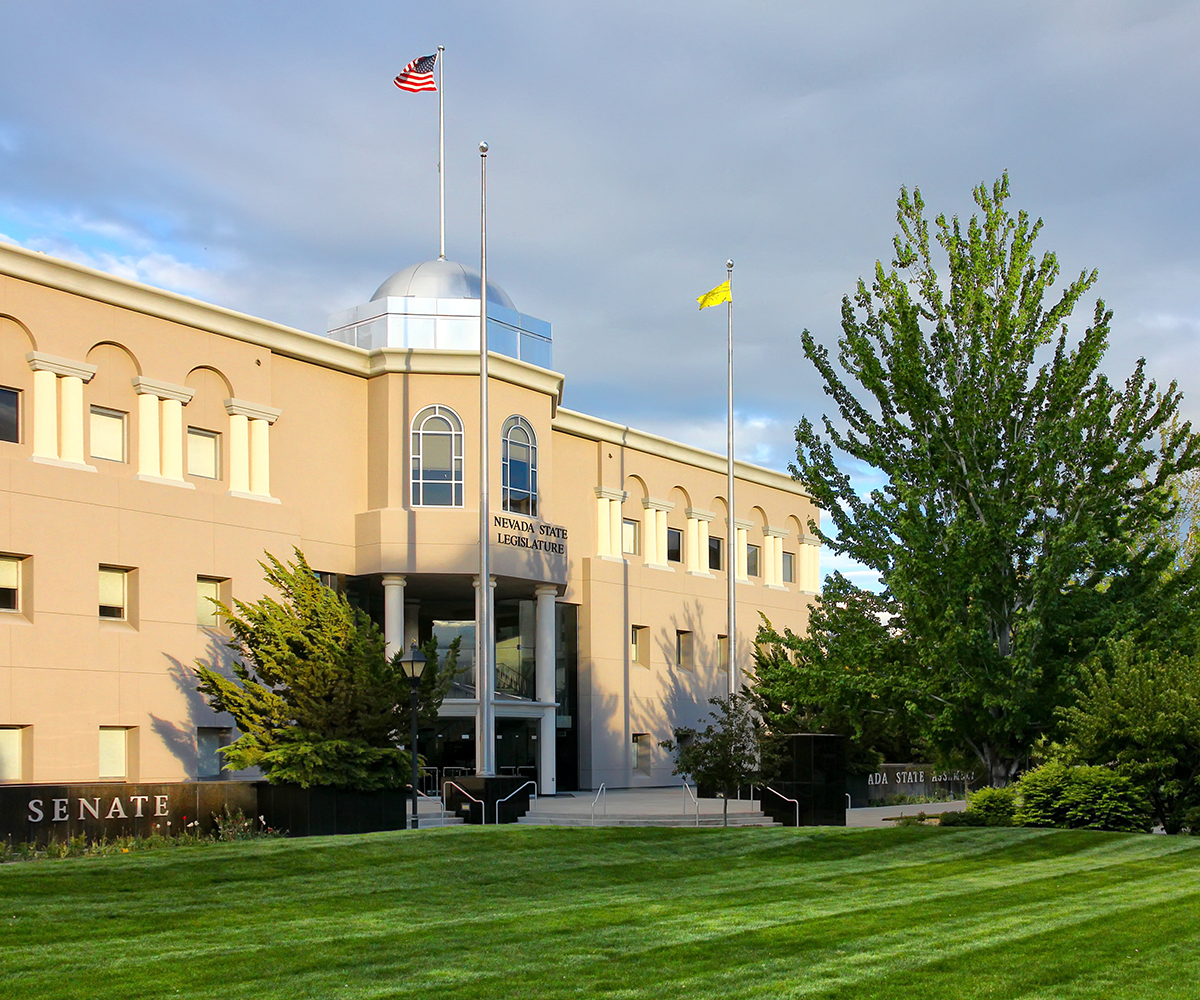After 120 days of discussions, debates, and votes, the Nevada Legislature concluded its 81st general session on May 31. Rosier than expected economic outlooks and massive federal stimulus funding allowed state lawmakers to spend big on issues across the state.
Budget
The Legislature passed a $9-billion two-year general fund budget which restores cuts to Medicaid of 6% across the board, 25% to NICU, and a “rollback” of 2.5% for acute care hospitals. Roughly $200 million in federal dollars will fund K-12 education programs that help students who suffered academically due to pandemic shutdowns. All told, Nevada will spend about $4.4 billion a year for at least the next two years on education, equating to about $10,200 per pupil per year.
Healthcare
This week, Governor Sisolak signed SB420, a bill to offer a “public option” for health insurance. Roughly 11 percent of Nevadans are currently uninsured.
If all goes according to the lawmakers’ plans, the public option plan would be made available in 2026 on the online marketplace established by the Affordable Care Act. However, many hurdles still remain before the change can go into effect and public option plans are available for purchase. First, the bill requires an actuarial study before the bill takes effect. Second, the federal Department of Health and Human Services must approve waivers to allow federal funding to help subsidize premiums. Third, additional technical legislation is needed to iron out provisions of the law.
Mining Tax Compromise
Governor Sisolak signed AB495, a bill that creates a new excise tax on the gross revenues of gold and silver companies. The new tax is estimated to bring an extra $150 million to $170 million a biennium. The bill as a whole will earmark more than $500 million over the biennium to education. The deal also designates existing mining tax revenues to education instead of having them flow to the general fund. It also sets aside $215 million of the state’s allotment of American Rescue Plan funds to support traditional and charter schools in their efforts to help children rebound from learning losses brought on by the pandemic.
Right to Return
The Culinary union’s top priority legislation, SB386, allows workers in the gaming and travel sectors the right to return to their jobs, covering those workers laid off after March 12, 2020, and who were employed for at least six months in the year before the governor’s first COVID-19 emergency declaration. Gaming interests and the Culinary Union struck a deal on the high-profile legislation late in the session, agreeing to limit the bill’s scope and exempting certain employee classes, including managers and stage performers. The bill also excludes small businesses of under 30 employees.
Election/Voting Reform
One of the more contentious topics of the legislative session was election reform. The Legislature passed AB432, making voter registration an automatic process when individuals become eligible. Lawmakers also decided to make Nevada the sixth state to permanently require mail-in ballots to be sent to all registered voters unless they opt out (AB321).
Supporters of the measures argued that voting should be more accessible and that last year’s mass mail-in voting proved the concept as an easy, efficient, and secure method to encourage voting. Opponents argued the need to strengthen voting regulations to ensure more secure elections in the future and said election fraud is easier when voters are automatically registered and sent ballots in the mail.
Unemployment Trust Fund
The federal American Rescue Plan allocated roughly $2.7 billion for the Silver State to backfill budgetary holes that emerged when responding to the pandemic. A significant portion of that amount will replenish the state’s unemployment trust fund to pre-pandemic levels, which led employers to breathe a sigh of relief. Without this funding, they would have likely faced higher taxes in coming years to replenish the fund, as was necessary after the Great Recession.
Gun Laws
The Legislature sent AB286 to Gov. Sisolak over the objections of gun rights activists. The measure would essentially ban homemade “ghost” firearms that lack serial numbers and make possession of such weapons illegal. Some consider ghost firearms especially dangerous because people can create and exchange them without documentation or state notification, making them nearly impossible to trace.
Criminal Justice/Police Reform
Lawmakers agreed to three criminal justice reform bills: a bill to decriminalize traffic tickets, eliminating jail time as a punishment for failing to pay traffic tickets; a measure that will allow the state attorney general to investigate police departments for systematic racism; and legislation to limit the use of no-knock warrants. Proponents said these new laws would help to protect all citizens in the state and should not be viewed as admonishing police for past practices.



